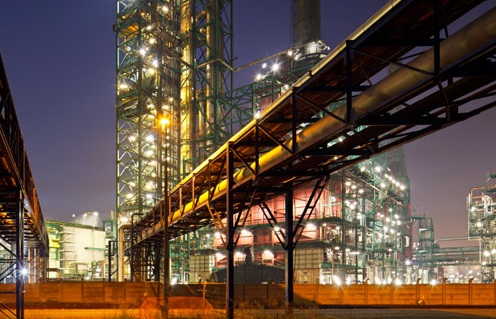Course Details
Your Growth, Our Mission

Course Description
The Training Course Will Highlight ?
After introducing various laboratory facilities, PVT tests and reports for various hydrocarbon systems are discussed in details, including quality control, designing tests, identifying the relevant data and maximizing their utilization by applying best practices and avoiding common mistakes.
- Includes a discussion on flow assurance and EOR.
- Relevant EOR laboratory tests.
- Covers fluid characterization and various techniques used for heavy end description.
- Widely used Equations of State are discussed in some detail, including their strengths and weaknesses.
- Description of how PVT and other laboratory data are used for tuning of EoS and predictive models
- Use of industry standard software packages.
- Examples and case studies
Training Objective
- Provide professionals with the knowledge on thermodynamic aspects of reservoir fluids.
- Learn the importance of PVT tests design and results.
- Evaluate the quality of PVT data.
- Identify the relevant PVT data for various tasks, best practices, and avoiding common mistakes.
- Understand the reason behind various PVT tests.
- Understand PVT tests for EOR.
- Develop an effective knowledge of flow assurance and related laboratory tests.
- Awareness of various Equations of State, their strengths and weaknesses.
- Gain perspective of fluid characterization.
- Awareness of various techniques for characterizing the heavy end.
- Appreciate the need for EoS tuning, the role of experimental data and parameters used for tuning.
- Gain knowledge of generating the necessary PVT input data for reservoir simulation using an industry standard software.
Target Audience
Those involved in reservoir fluid sampling, testing and modelling, in particular; Reservoir Engineers, Production Engineers/Technologists, Flow Assurance Engineers, Petrophysicist, Petroleum Engineers, Geologists/Geochemists, Drilling Engineers, Well Optimization Engineers
Recent professional participants have come from ENI, Statoil, BG Group, Schlumberger, GDF Suez, Apache, TAQA Britani, Talisman, EnQuest, Hess, Maersk Oil, Marathon Oil, Nexen Inc., Perenco, Premier Oil, Shell, Summit Petroleum, Tullow Oil, RPS Energy, Senergy, Murphy Oil, Scomi Oil Tools, SGS, JX Nippon, Crain India, Eni Norge, Suncor, RWE.
Course requirement:
Petroleum engineering background or some experience in measurements and modelling of reservoir fluid properties
Training Methods
This interactive Training will be highly interactive, with opportunities to advance your opinions and ideas and will include;
- Lectures
- Workshop & Work Presentation
- Case Studies and Practical Exercise
- Videos and General Discussions
Daily Agenda
- A brief introduction to Petroleum Engineering
- Petroleum reservoir fluids, including paraffins, naphthenes, aromatics, non-hydrocarbons
- Phase behaviour of single and multi-component systems, bubble/dew point line, critical point, phase change, phase envelope in multicomponent systems, cricondenbar and cricondentherm, retrograde condensation, changes in phase envelope as a function of composition
- Classification of reservoir fluids, dry gas, wet gas, gas condensate, volatile oil, black oil
- Fluid sampling, downhole sampling, surface sampling, well preparation
- Introduction to PVT tests/reports, general structure of PVT report (examples of PVT reports)
- Effect of sample contamination, how to find out if the sample is contaminated, decontamination options (examples)
- Quality checks, opening pressure, QC tests
- PVT test facilities, basic requirements, PVT cells for oil/gas condensate, other relevant test facilities
- PVT tests for dry gas, wet gas, black oil, gas condensate and volatile oil, including; Constant Composition Expansion (CCE), Differential Liberation (DL), Constant Volume Depletion (CVD), Separator Tests
- Identifying relevant data in PVT reports, applying best practices and avoiding common mistakes
- Conducting various calculations, including; oil Formation Volume Factor (Bo), Gas Formation Volume Factor (Bg), Gas Oil Ratio (GOR), Condensate Gas Ratio (CGR), API gravity, Z-factor, Total Formation Volume Factor, Isothermal Compressibility for Oil and Gas
- Case studies, PVT reports for various fluid systems, including black oil, volatile oil and gas condensate
- Introduction to Flow Assurance, definition, importance
- Laboratory equipment and tests for viscosity, wax, IFT, asphaltene, hydrates, scale, emulsion, foam
- Fluid characterisation
- Gas injection, ternary diagram, Minimum Miscibility Pressure (MMP)/Enrichment (MME), rising bubble, slim tube, forward contact, backward contact. swelling test
- Introduction to EOR, including; gas/CO2 injection, water alternating gas injection (WAG)
- PVT tests for heavy oil and EOR
- Ideal gas law, real gas, Z-factor
- Equation of State (EoS), initial development, strengths and weaknesses, data requirements for modelling, need for tuning and laboratory data
- Most popular EoS, i.e., Peng Robinson (PR) and Soave-Redlich-Kwong (SRK)
- EoS modelling, data requirements, shift parameter, mixing rules, binary interaction parameter
- EoS tuning using the data generated in PVT tests
- Generating PVT files required for reservoir simulation
- Case studies including EOS tuning for a black oil and a gas condensate
Accreditation
BTS attendance certificate will be issued to all attendees completing minimum of 80% of the total course duration.
Quick Enquiry
Request Info
Related Courses
Your Growth, Our Mission

